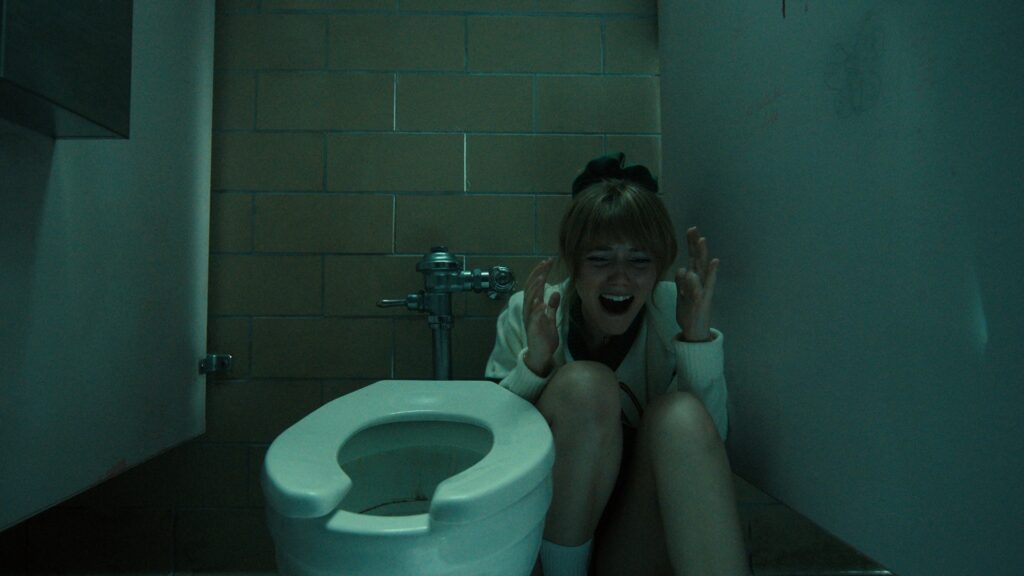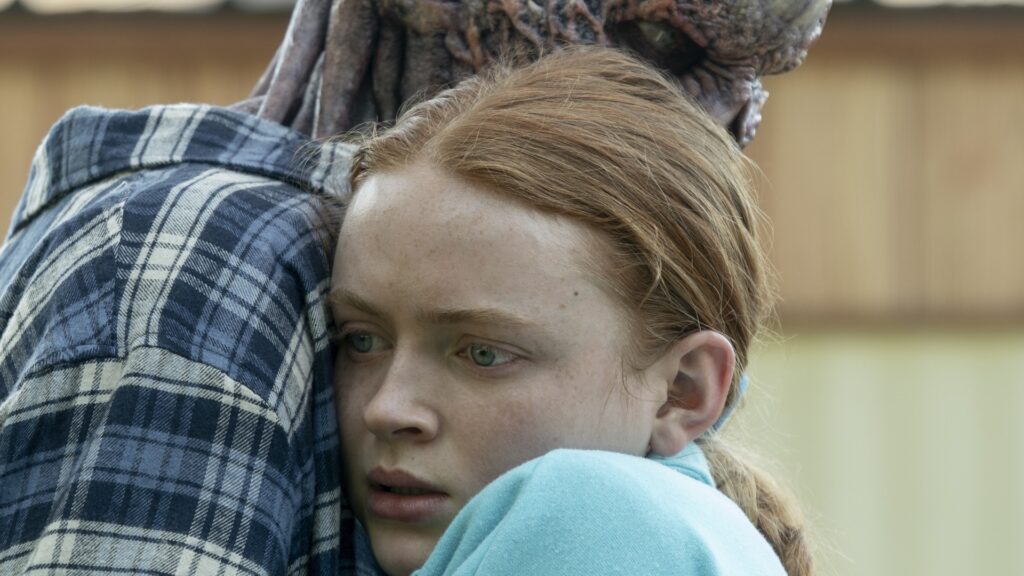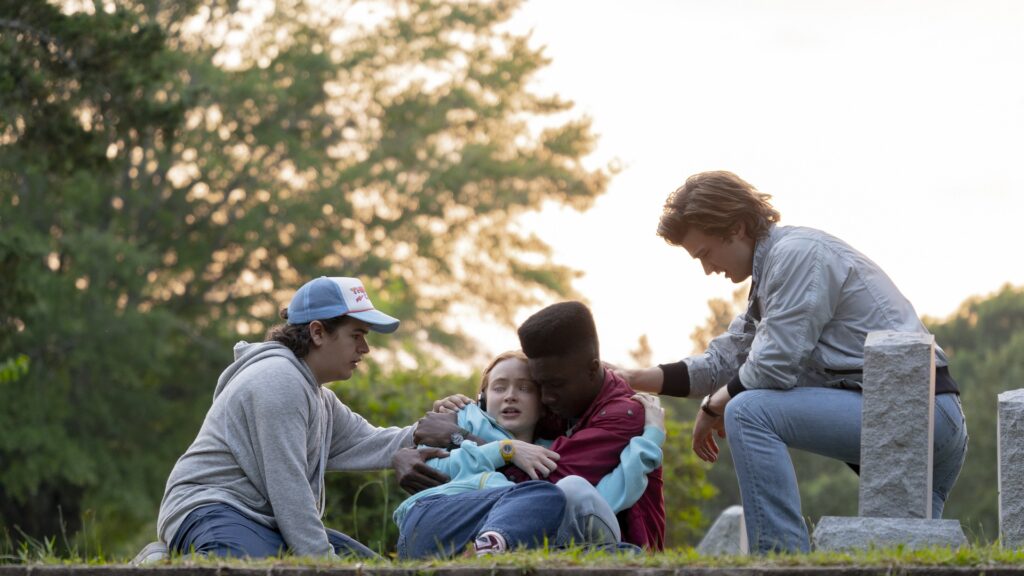Season 4 of Stranger Things has been at the heart of discussions among series lovers since its final episode. If the teenage series is above all excellent entertainment, it also hides a deeper reflection on depression. Warning, spoilers!
This is THE sequence that has had fans talking for weeks: Max’s race against time, to the wonderful music of Kate Bush, Running Up That Hill. Overall, this episode 4 of season 4 of Stranger Things represents a highlight of the series, available on Netflix.
If the teenage epic had already tackled trauma and grief in its previous seasons, the diabolical creature of these new episodes seems to be a perfect and upsetting metaphor for depression. Attention, spoilers in the rest of this article on the fourth season of Stranger Things.
Vecna, touching metaphor for depression
In Dear Billy, the fourth episode of this new season, the young Max is at the heart of the plot. Consumed with guilt after the death of her brother, she quickly realizes that she is the next target of Vecna, the big bad wolf of the season. With the help of Dustin, Lucas, Steve and the others, she also understands that Vecna does not choose her victims at random: all have lived through past traumas, haunted by a hint of guilt. They also have in common to consult the school psychologist.

This narrative drive is far from trivial: with this bias, Stranger Things erects Vecna as a metaphor for depression and trauma. The symptoms caused by this big villain thus strongly resemble certain episodes experienced by depressed people: recurrent nightmares, persistent headaches… From the start of the season, it is also clear that Max is in a depressive phase, avoiding his friends from the past at all costs and shutting himself up in an unhealthy isolation.
A disease personified, therefore very real
Where the series excels is in its subtlety and strength in its treatment of subject matter. In a trying sequence, the teenager writes letters to all her relatives, like a last goodbye. She thus writes to her brother, Billy, describing her guilt for not having succeeded in saving him. A technique regularly used in therapy, to confront patients with their traumas.

A plot that obviously culminates in the scene where Max is confronted with Vecna, at the end of this famous episode 4. While the rebellious teenager maintains to this monster a bit disgusting that he is not real, we can not to think about how depression is regularly put aside, especially by relatives of sick people. Often considered as an invisible, imaginary, or trivial evil, depression is thus rarely taken seriously.
Stranger Things takes the opposite view of these beliefs, which unfortunately are still relatively popular, and on the contrary personifies mental disorders as a very real entity, with serious consequences.
All You Need is Love
But while Max may well sink into Vecna’s arms, the series shows us a much brighter and absolutely heartbreaking aspect that has touched many concerned fans. Obviously, remember that depression is a real illness, which requires treatment by health professionals.
But Stranger Things does good by highlighting the power of culture, but also that of love and friendship to turn the corner and “Running Up That Hill”. This song by Kate Bush, used in this already cult scene, seems to have been written especially for the occasion, so perfectly does it fit the situation.
It is thanks to this music thrown into Max’s ears that the young high school student manages to cling to her relationships with her loved ones and thus regain the upper hand over Vecna. One could argue that this script pirouette seems too cheezy and a bit easy. Yet it does provide a memorable climax to Max’s plot and a way out, at least temporarily, that many depressed people can relate to.

But Stranger Things has the intelligence not to solve the case so easily. The series thus shows us Max constantly on the alert until the end of the season, keeping Kate Bush close to her to avoid any relapse or a return of Vecna. Obviously, the plan will not quite go as planned, and the final episode is very painful to watch. But, constantly watched by her band of friends (magnificent “I see you” by Lucas), Max touches us and reminds us of the importance of giving attention and love to our loved ones, no matter the demons calling them.

